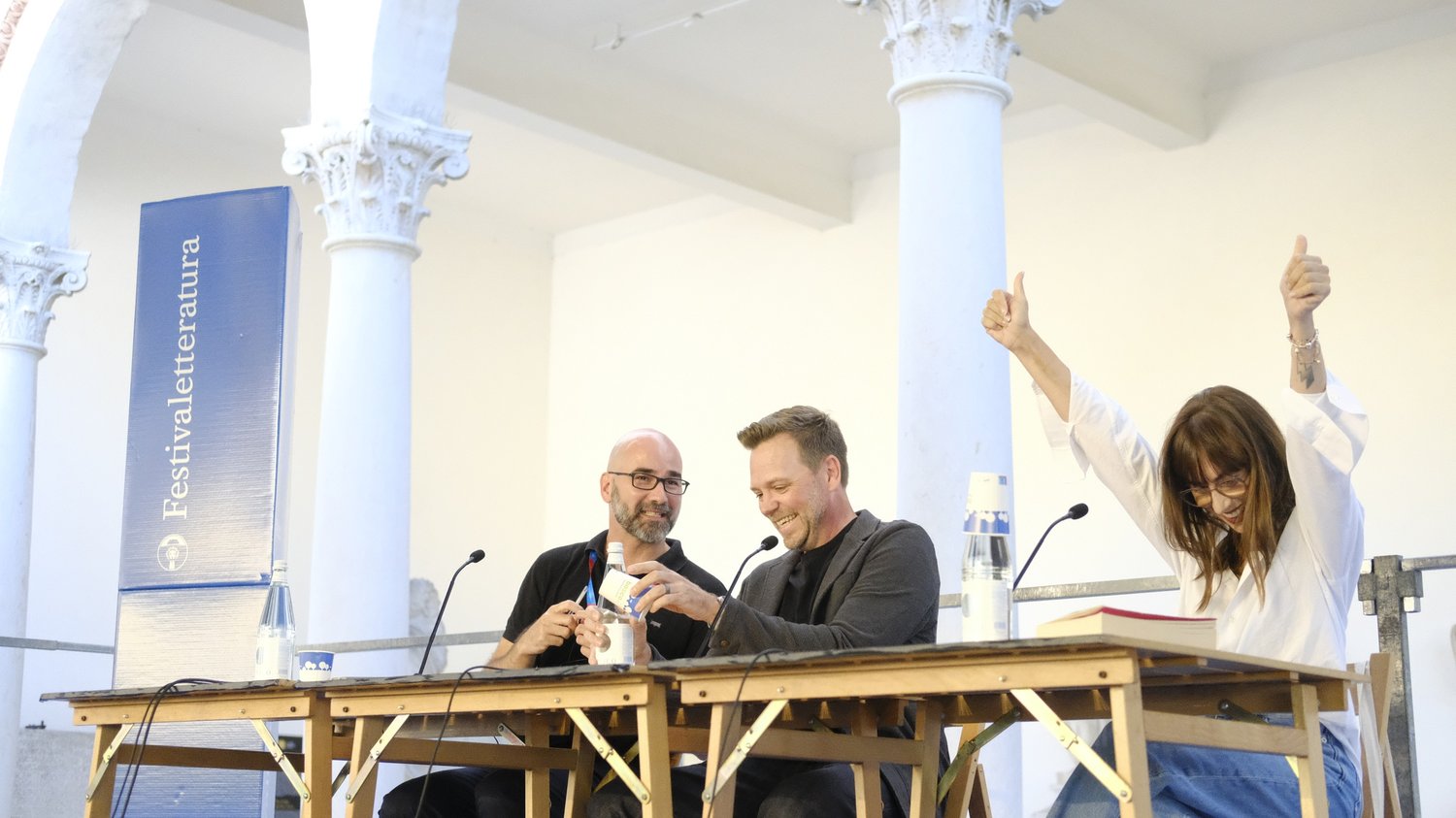



Authenticity and the American Novel
Nathan Hill joins the ranks of acclaimed American writers who have attended Festivaletteratura, bringing his distinctive voice and perspective to this year’s edition. Speaking to Olga Campofreda before an engaged audience, Hill reflects on his journey as a writer and the shifting landscape of American literature.
Hill recalled his upbringing in the Midwest, a place seemingly far removed from the literary centres of power. From an early age, he believed that if he wanted to become a writer, he would have to leave for New York, since culture and talent seemed to converge there. Once he arrived, however, he found himself surrounded by people who had read more, watched more films, and absorbed more art. He felt he had to catch up constantly in order to belong to this environment. This desire to fit in seeped into his writing, which he admits was forced and uninspired during those years. Paradoxically, it was only when he stopped trying to please New York, when he left and decided to pay no attention to its gaze, that the city began to take an interest in him. For Hill, authenticity to oneself proved the key to unlocking his true voice.
The conversation then turns to how the internet, its advent and take-over, influenced his work. In the 1990s, Hill embraced technology enthusiastically, fascinated by hypertext narratives, stories told through links that suggested a new, non-linear way of writing novels. At the time, the internet seemed utopian, full of creative possibilities. Two decades later, however, his view changed drastically. What once held the promise of connection has, in his eyes, degenerated into a landfill, in an unexpected shift from utopia to dystopia.
Throughout the interview, Nathan Hill explains different aspects of his second novel Wellness, a follow up to The Nix. In Wellness, Hill examines the tragicomic struggles of a young couple navigating the challenges of marriage in the twenty-first century. While exploring their relationships in its various stages, the book also examines the disconnection between our real selves and our online personas. Hill approaches these themes with sharp wit and humour, using satire to reveal both the absurdities and the vulnerability of contemporary life.
Traditionally, American novels featured narratives of manners and behaviors, aimed at capturing the essence of ordinary Americans. After the Civil War, it became possible to imagine a single “American-ness,” though it remained tied to the assumptions of an ordinary White American. Hill agrees with novelist Marlon James, who denies the very existence of the Great American Novel. Yet he acknowledges the paradox: people continue to talk about it, which suggests that the concept still exerts power. What has changed, Hill argues, is that contemporary American literature has opened the definition outward, no longer confined to one identity but embracing a broader, more diverse range of voices and experiences.